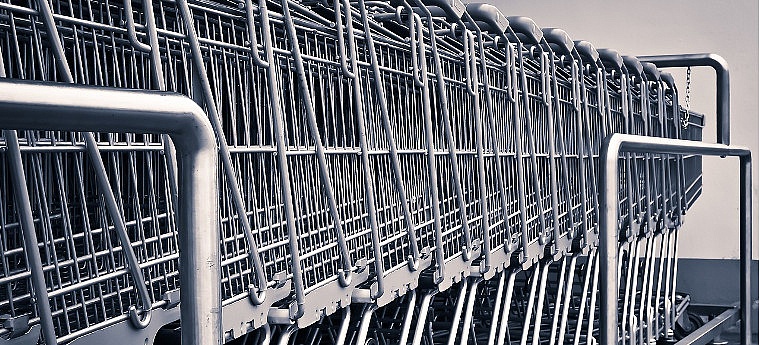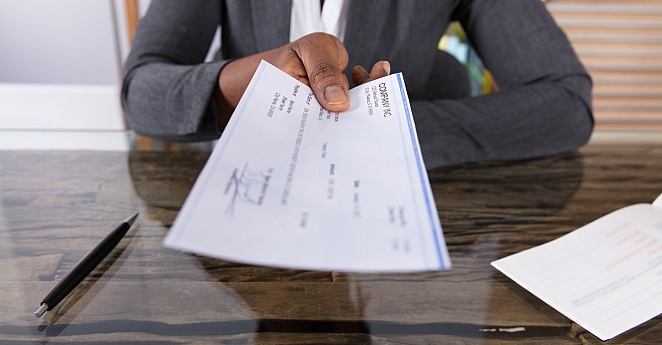What to Expect If You Are Unable to Pay Your Payday Loans Back?
Lenders have built-in provisions to ensure they make back as much money as possible when things go wrong.

Payday loans are meant to be short-term loans that help individuals cover major expenses when they don't have access to money. It's assumed by the lender that you will be able to pay the loan back during the time period specified by the contract you signed. If you're unable to pay back the loan, you'll find yourself in a difficult situation. Not only will you still need to pay back the loan, but you may have to deal with certain penalties that don't start to accrue until you are late. Understanding what happens if you don't pay a payday loan might impress upon you why it's so important to pay your loan back on time.
Initial Contact
While there's no payday loan company that will be happy to see you miss your loan payments, it's also important to remember that payday loan companies are businesses. They don't take your inability to pay personally. They're more concerned with getting their investment back. If you don't pay the loan back, the company might be out a significant amount of money that makes it harder for them to lend to other people and thus to stay in business. As such, the initial conversation that you have with the payday loan company may be centered around what you can do to pay the loan back.
Your first conversation will usually consist of a conversation with a representative. He or she will usually make an attempt to find out why you have fallen behind and try to get you to pay back what you owe. If you state your case as to why you can't pay back the loan as agreed, there's a very good chance that the representative will work with you to come up with a new payment plan. This plan will certainly cost you more money over time, and it will definitely include significant penalties, but it will allow you to avoid further issues and will generally keep you in good standing with the lender.
The Next Step
The next step largely depends on how you've agreed to pay back your loan. If you've given your lender access to your account to make automatic withdrawals, they will continue the withdrawals on the schedule that you agreed to when you signed your loan agreement. This means that you'll be hit with significant overdraft charges every time your bank balance goes negative. The lender will continue to make withdrawals until your debt is paid.
If automatic withdrawals are not a possibility, there's a good chance that the lender will end up selling your loan to a debt collection company. At this point, you'll start to get phone calls from debt collectors multiple times during the day. Most will attempt to set up a payment plan that will allow you to pay off your debt, but some will require you to make a lump-sum payment to make the calls stop. When you deal with the debt collector, there's a good chance that you'll also see your credit score drop dramatically because your account is in collections.
Taking Collateral
If you've secured your loan with collateral, this is the point at which the loan company will exercise its rights. If you've used your car title as collateral, for example, the lender will be within its rights to repossess your vehicle in order to pay off the balance of your loans. This is something to which you agreed when you took out your loans, so it's entirely legal – even if it is particularly inconvenient and makes your life a great deal harder.
Again, you're still at a point at which the payday lender would rather work with you to get its money than to move forward in any other way. Even those lenders who have loans secured by collateral would rather get cash, and they know that having to sell a used vehicle can ultimately be less financially rewarding than simply getting back the money that they are owed. Even at this point, you should be able to work with the payday loan company to work out an agreement that will let you pay off your debts without having to experience some of the worst fallout from your inability to make your payments on time.
Going to Court

The final step is usually going to court. Whether the debt has been sold off to a third-party creditor or the payday loan company is handling the debt in-house, those who are unable to collect their money will eventually use all the legal means at their disposal to get what they are owed. When all other avenues are exhausted, you can expect to get a letter from an attorney notifying you that you are being sued for the amount of your initial loan, plus any accrued interest, late fees, and any legal costs accrued by the lender.
If you choose not to go to court, you'll likely have your wages garnished. This means that the lender will automatically get a certain amount of money from each paycheck issued to you. This is generally done without your input using a specific formula, essentially forcing you to pay back your loan at a rate that the court considers fair. If you do attend the hearing, you may be able to work with the court to set up less punitive payments, but missing one of these payments can cause you significant issues with the court instead of with your payday lender.
The important takeaway about what happens if you don't pay a payday loan is that it is very important to pay back your payday loans. If you feel like you won't be able to make your payments, your best choice is always to contact the lender and to try to work things out. The worst thing you can do is to try to avoid the debt. Not only are payday lenders more experienced in matters of recovery than the average person, but they have the law on their side. If you want to avoid legal and financial complications, make sure to honor the contract you signed.





